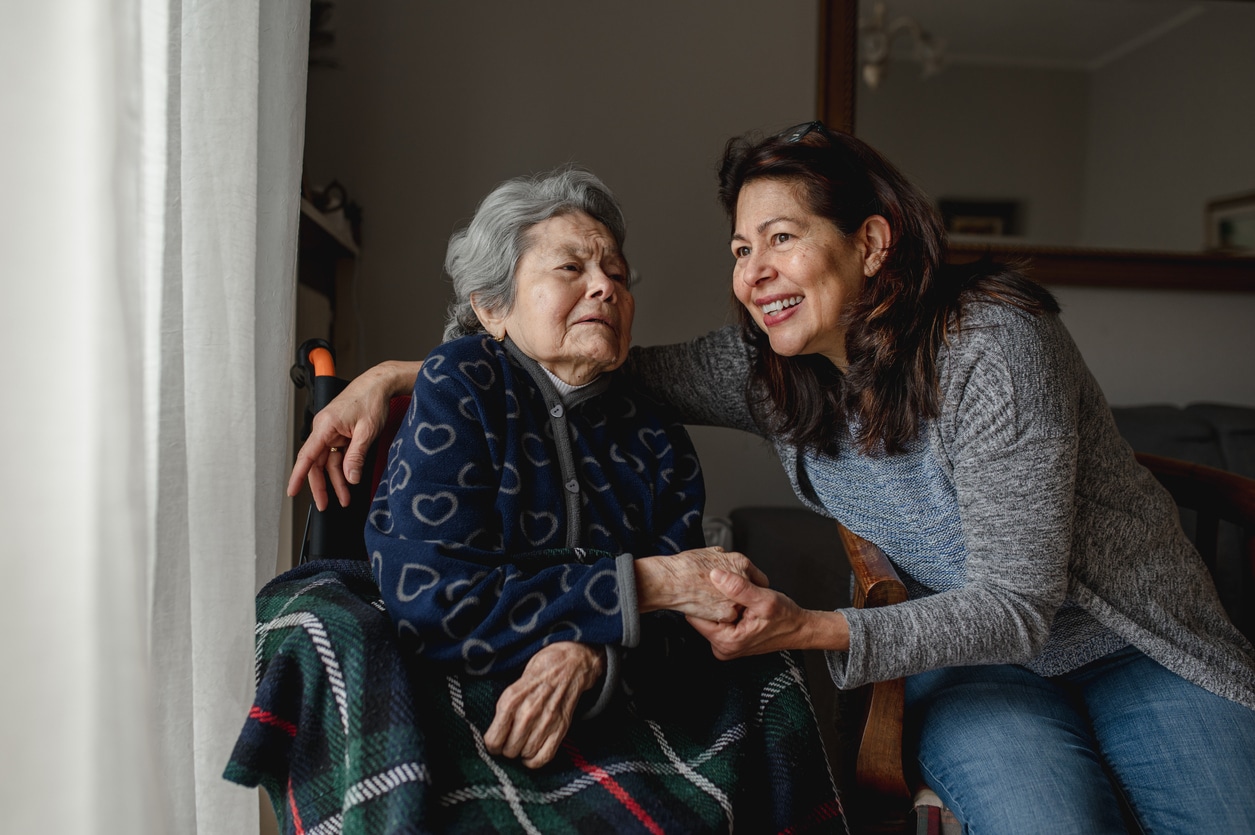Depending on your level of health and vitality, the aging process can be much easier for some than it is for others. While the notion of growing old creeps up on some people in more gradual ways, many seniors are faced with a sudden or newly discovered debilitating health issue.
Caretakers are often blindsided as well. For those who live far away, they come home to visit and see major declines in their loved one and suddenly realize things are much worse than they thought. Others witness the devastating effects of those sudden or severe health issues that cause unforeseen challenges, and find they are not sure which way to turn for help in managing the situation.
So how do you know whether home care or assisted living is the right choice for you or your loved one?
In the simplest terms, the two options are often described as one where “you go to the caregiver” and the other is “where the caregiver comes to you.” Let’s take a closer look at both options so you can make the right decision for you and your loved ones.
Assisted Living
Assisted living (also known as boarding homes, congregate housing, or adult congregate care) is where you or your loved one goes to the caregiver. For many assisted living situations, seniors are presented with options where they either reside in a private or a shared room, and find social interaction with other residents through planned activities and shared meals. In most places, residents have access to 24-hour personal assistance through caregivers who are there to help with daily tasks such as grooming, meal services, and medication management. Depending on the facility, other services such as housekeeping, physical therapy, or speech therapy may be available for an added cost. Many seniors find that the absence of constant supervision and medical treatment offers a less stressful and more peaceful environment.
Home Care
Home care (also referred to as in-home care) is where the caregiver comes to you. The good news is that with today’s advancements in healthcare technology and remote care options, many complications that arise from diseases, health conditions, or other physical limitations are often manageable from home with help from a caregiver. Because home care professionals come to the senior’s place of residence, this is often the preferred way of doing things. The ability to receive much-needed care and attention without having to leave the comfort of home is a game-changer for many seniors and caregivers. Home caregivers can range anywhere from licensed medical professionals to workers assisting with daily living activities, which makes the notion of home care highly customizable based on the types of care needed. What’s more, research has shown that individuals who receive care in the home have significantly better outcomes. Having family and friends around to help goes a long way toward maintaining a happy and healthy lifestyle, too.
Home Care vs. Assisted Living Considerations
So which is the better option? Hard to say. Choosing between home care and assisted living has always been a common struggle for seniors and their loved ones.
Following are a few factors to consider that can help make the decision less burdensome:
- Consult your loved one’s care team. Talk with their doctor or healthcare provider to find out how much help your loved one really needs and for how long. This will help narrow it down to a specific group of needs that require attention, from medical to personal.
- Research your options, and review cost estimates. Reach out to both in-home caregivers and assisted living homes and ask a lot of questions about their rates and associated services. Whether you need it or not right now, it’s a good idea to plan for the long term in order to come up with a good, sustainable plan that you won’t be forced to change or break from down the line.
- Consider social and emotional needs. A socially positive and safe environment is very important. Prioritizing the need for positive interactions with others will go a long way toward a person’s healing and well-being.
- Ensure there is quick, direct access to emergency services. Make sure the arrangement you choose provides quality emergency services, such as well-equipped ambulances and trained medical staff to deal with the specific complication at hand.
No matter which way you go, it’s helpful to remember that growing old is an inevitability we all have to face sooner or later — however, it brings with it a bounty of experience and wisdom that inspires a deeper appreciation for life, a sense of personal satisfaction, and the ability to overcome hurdles of all shapes and sizes.




